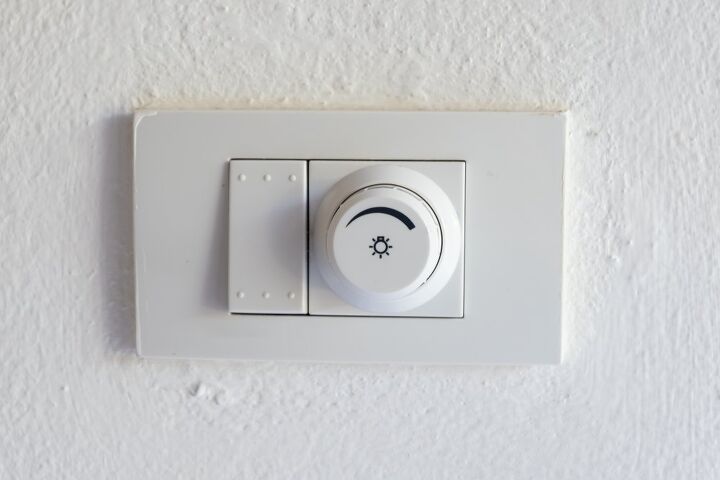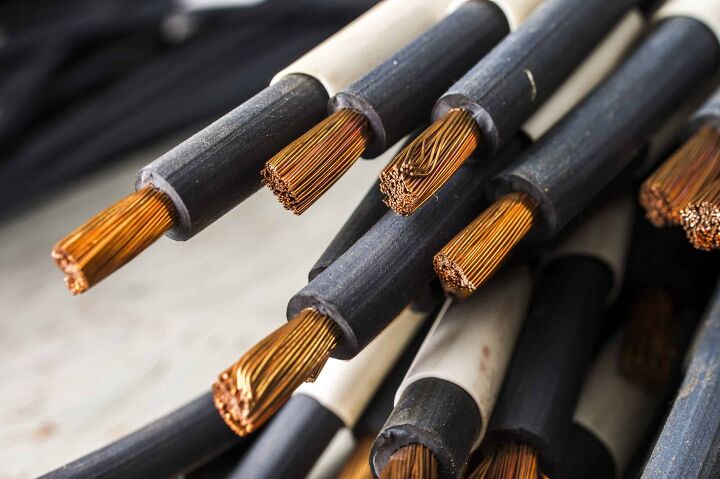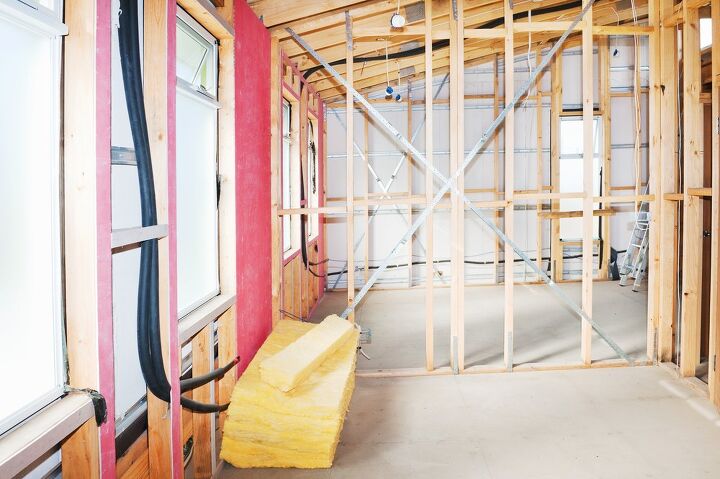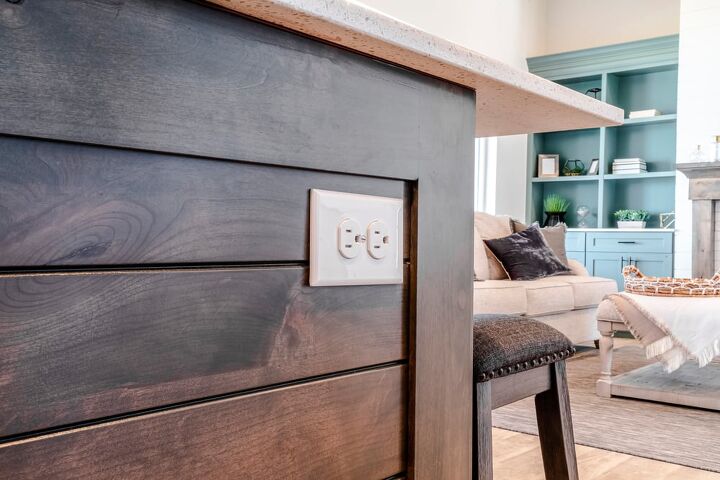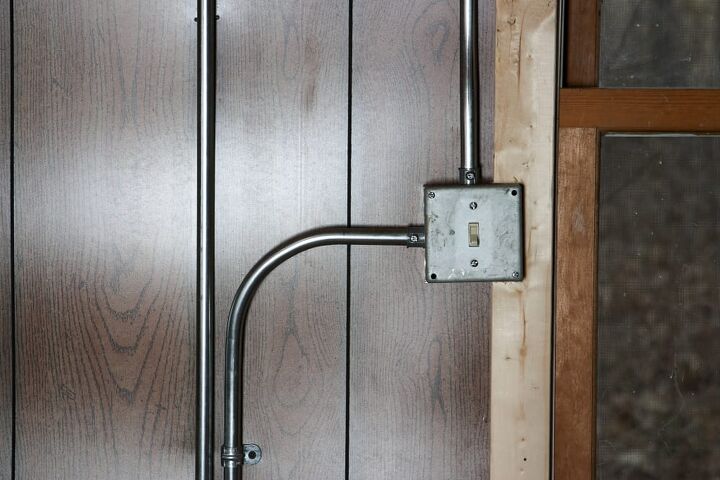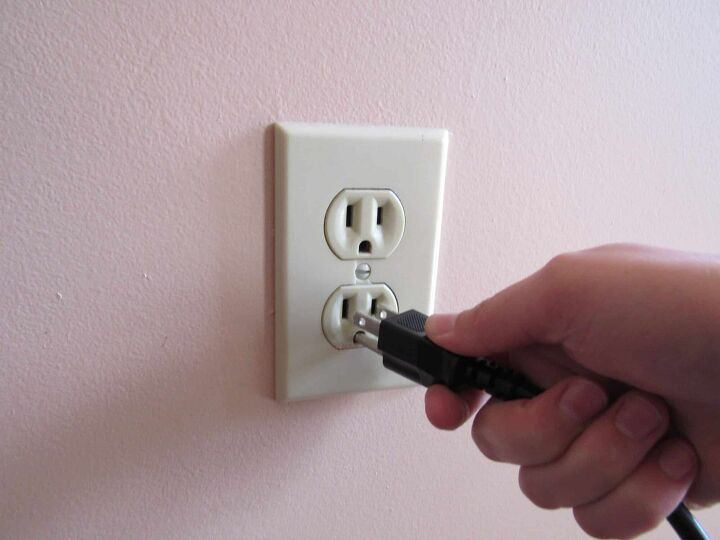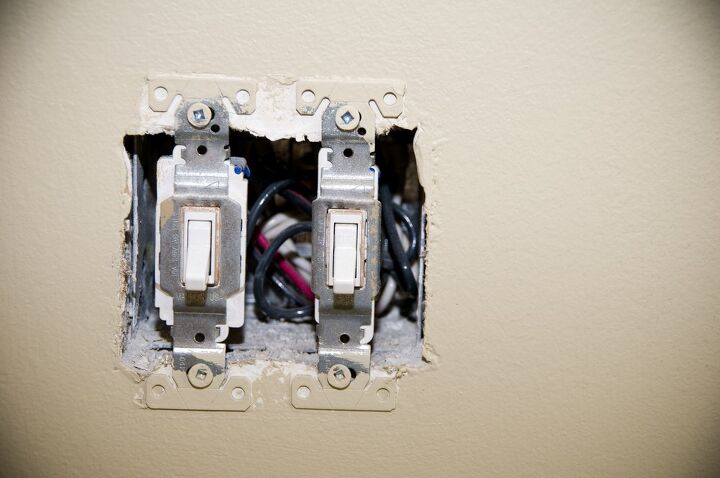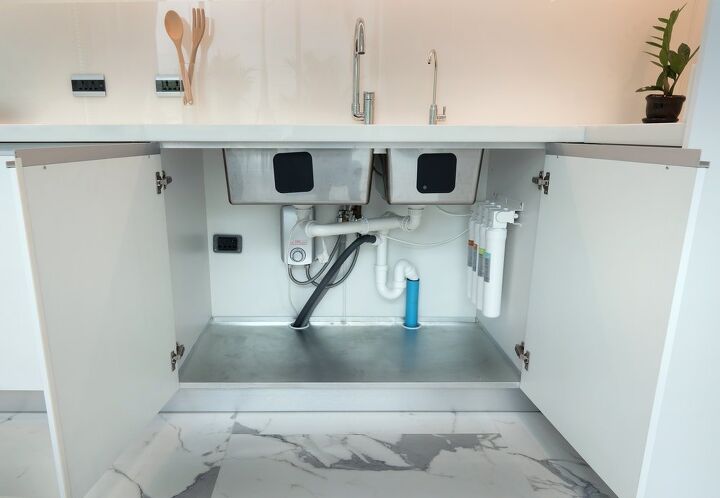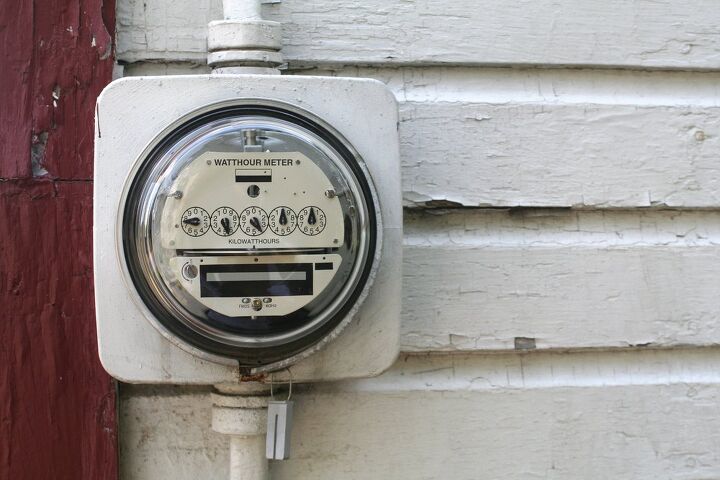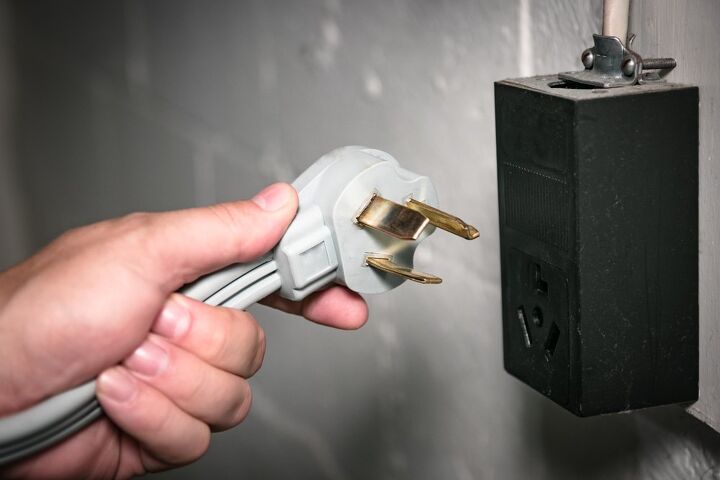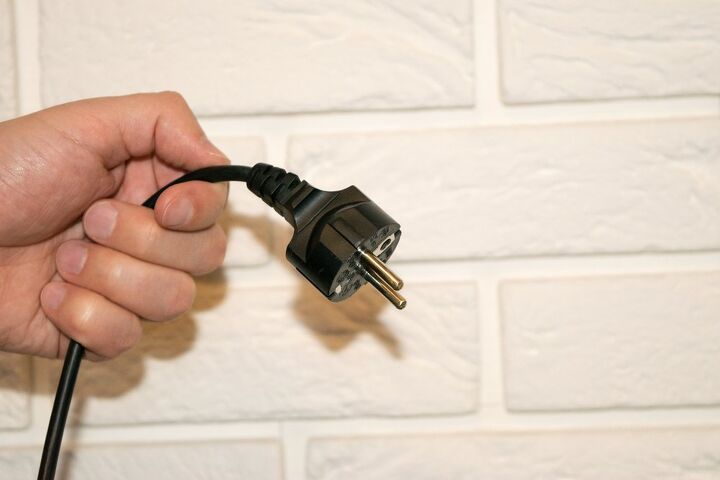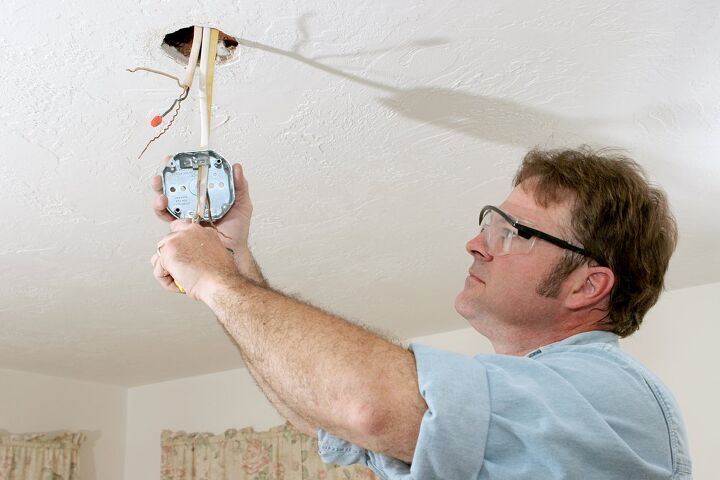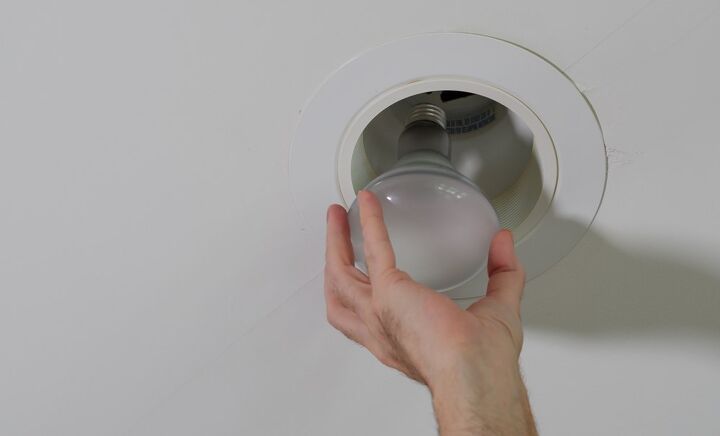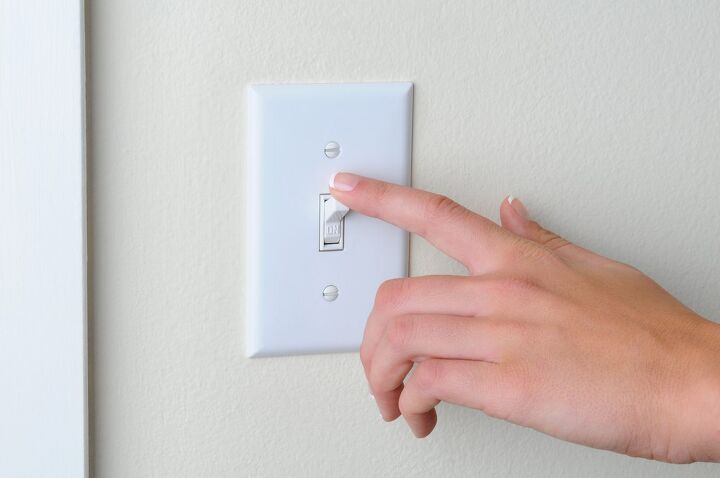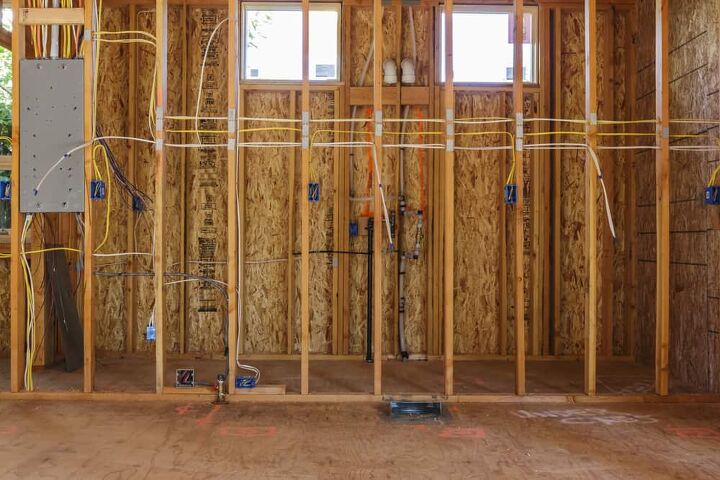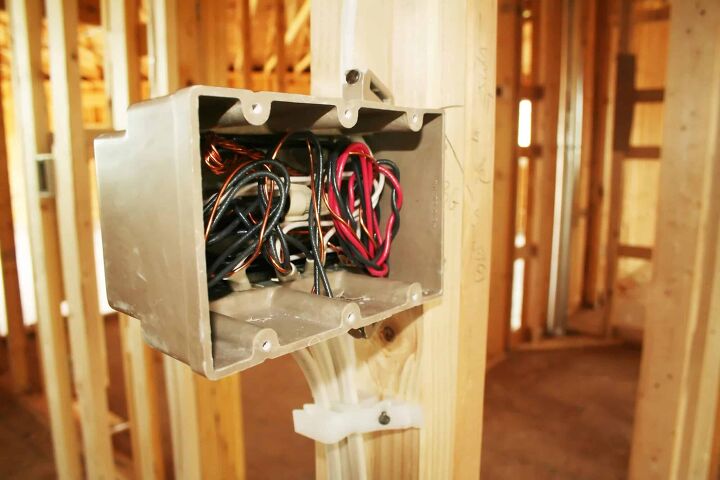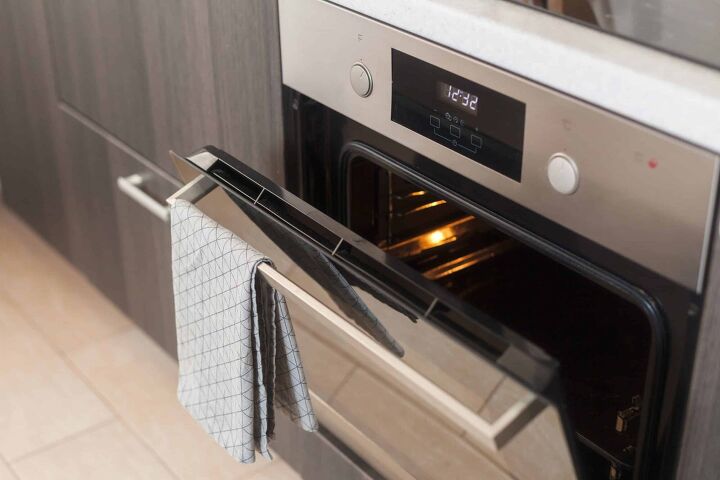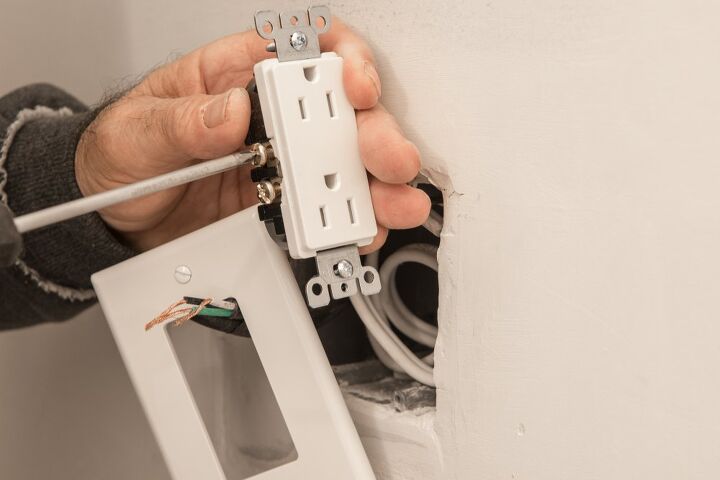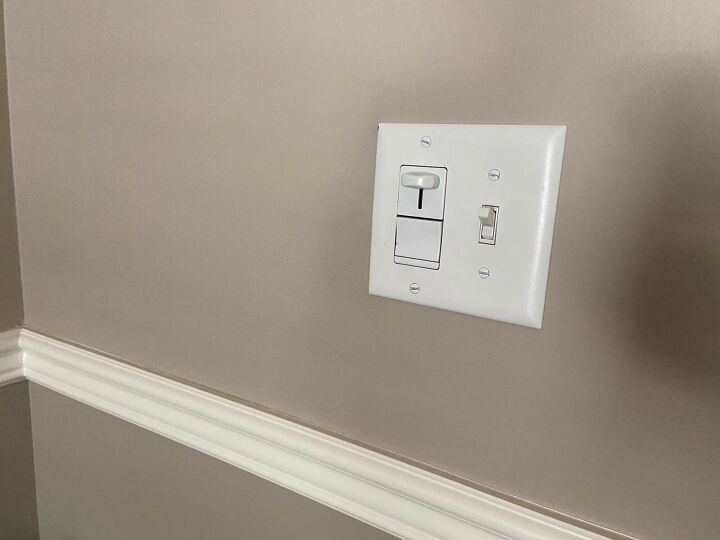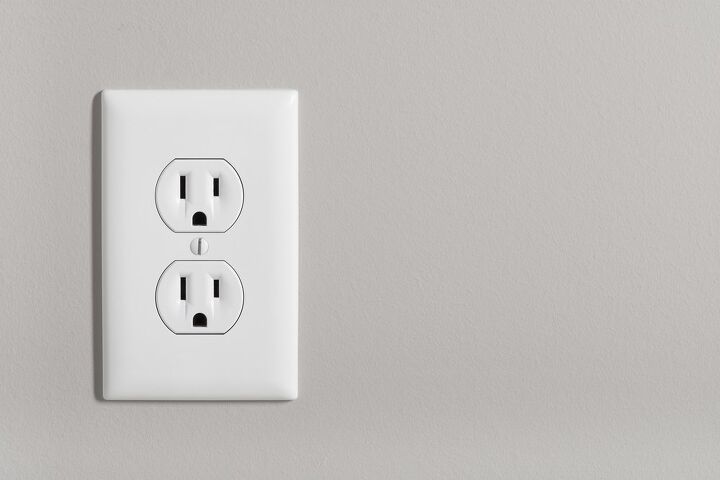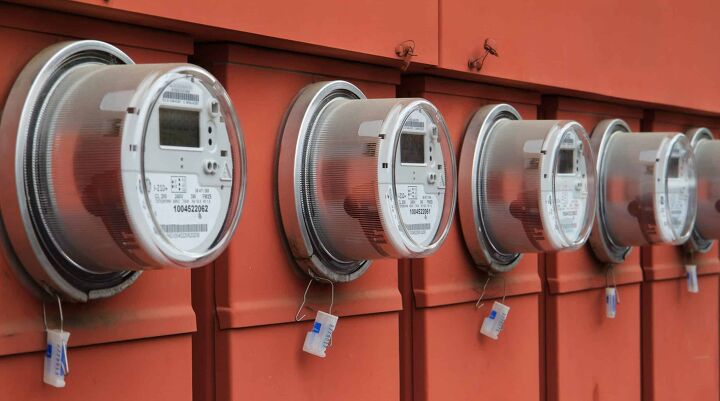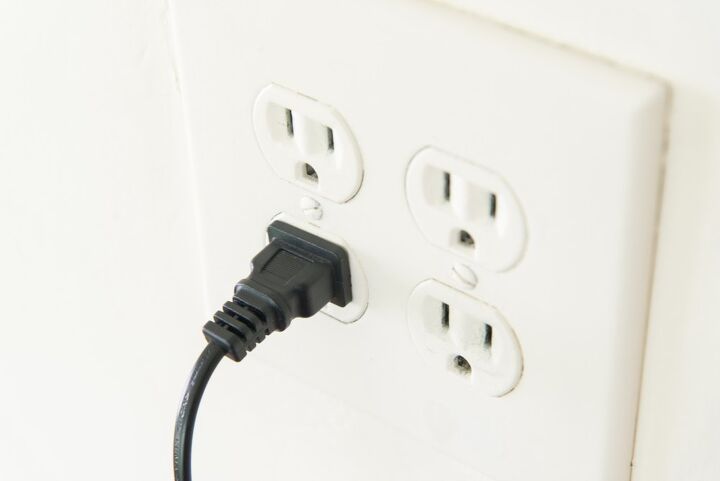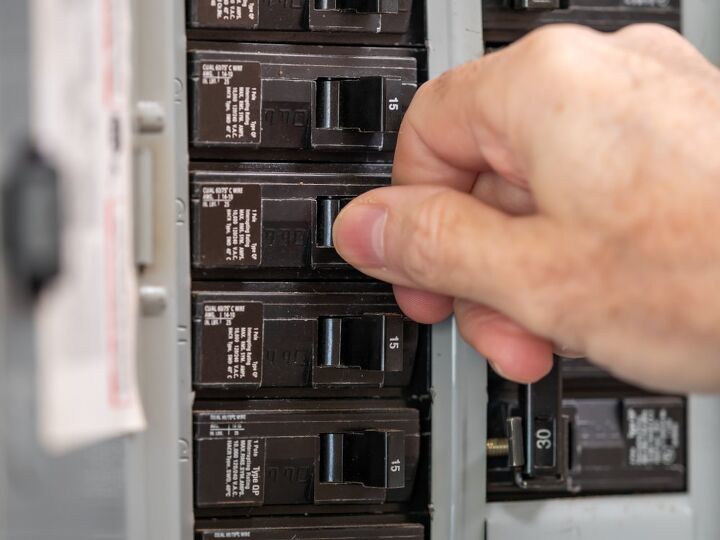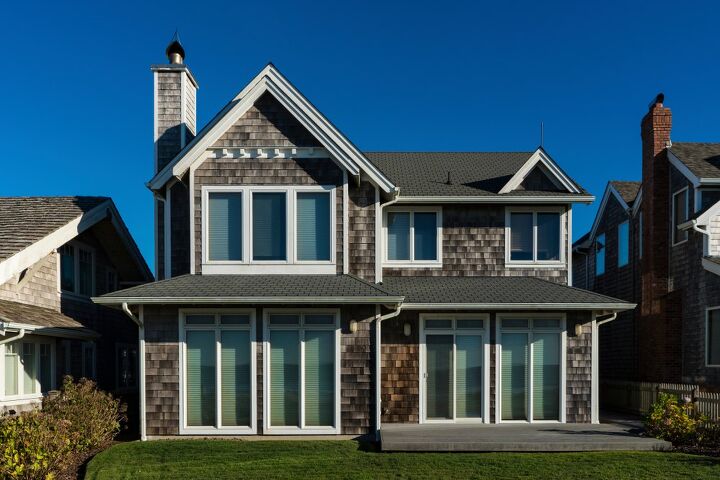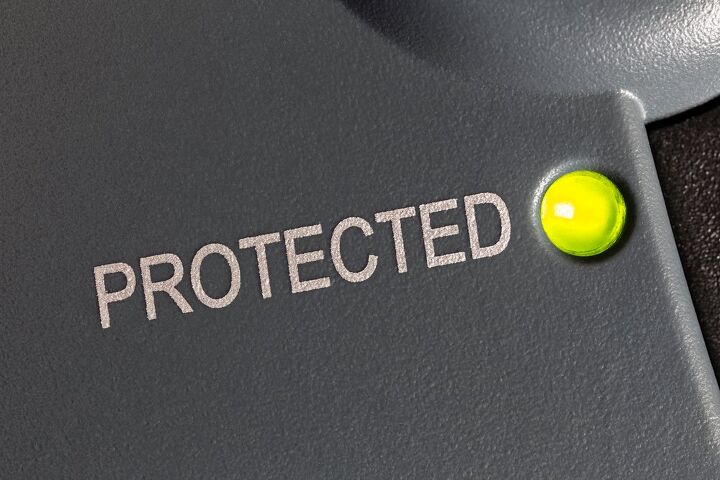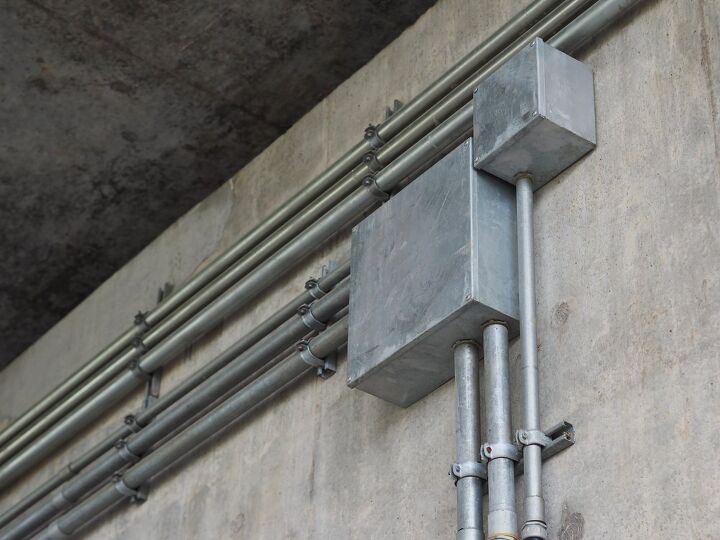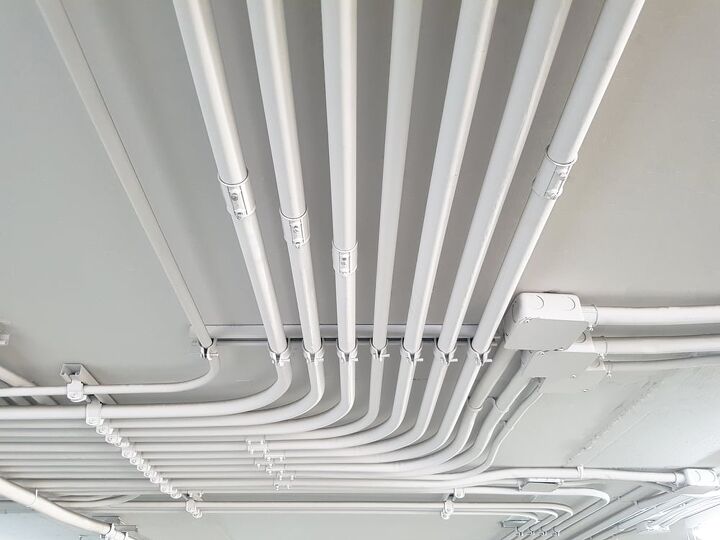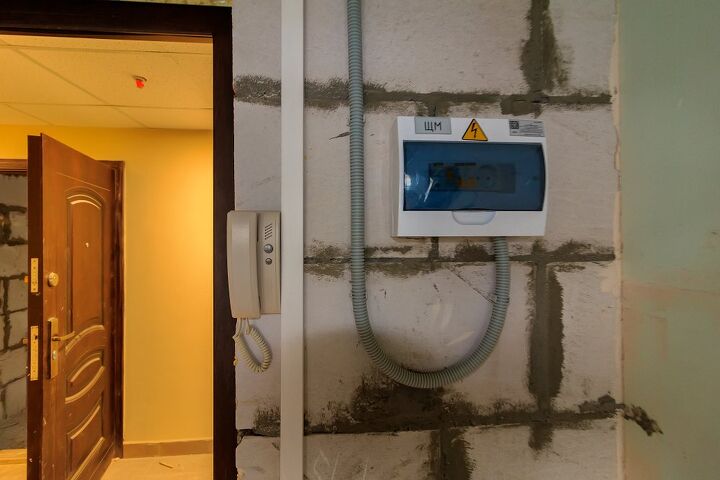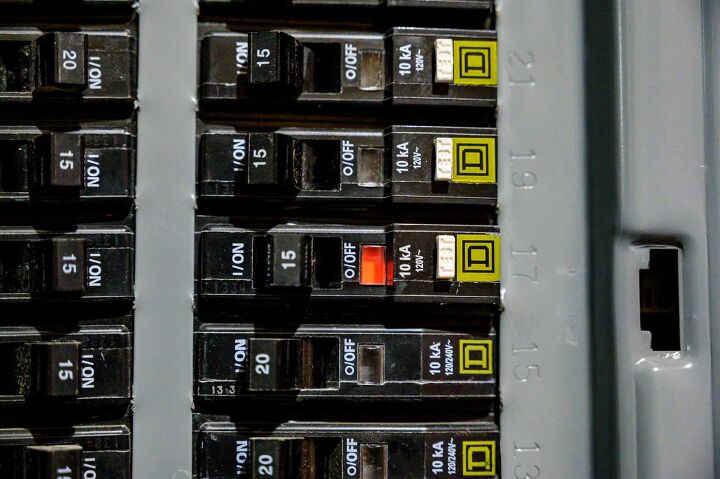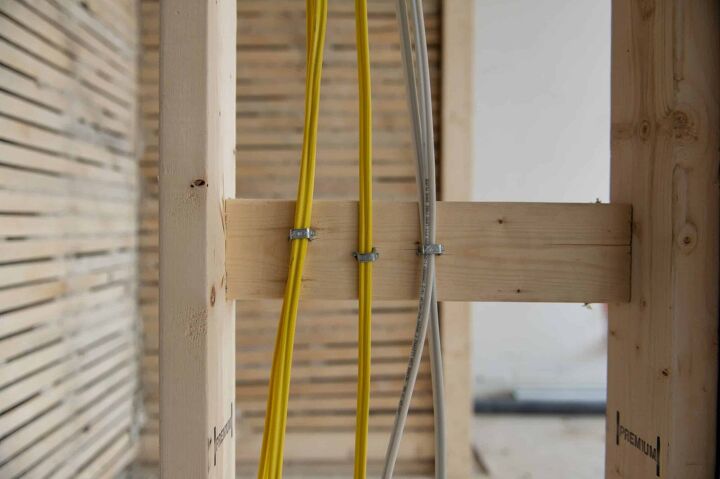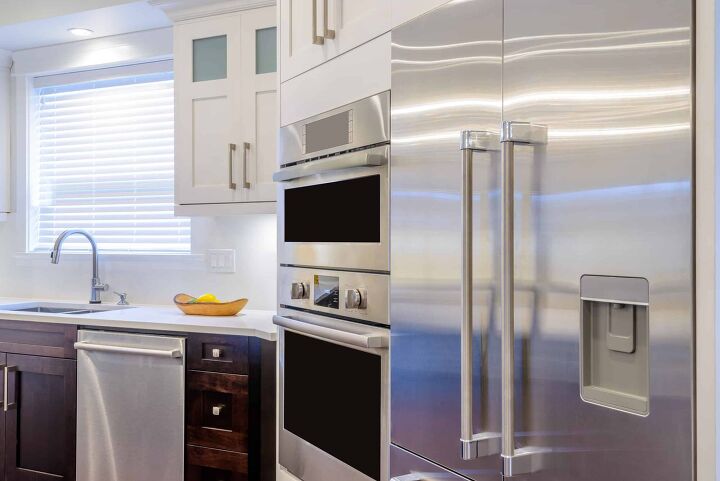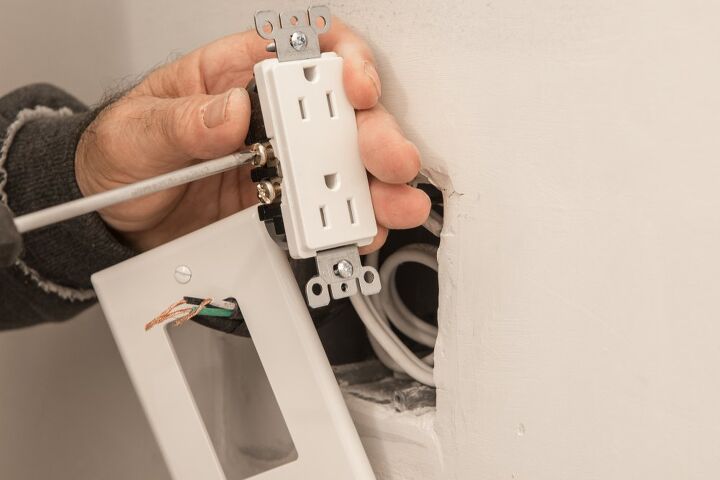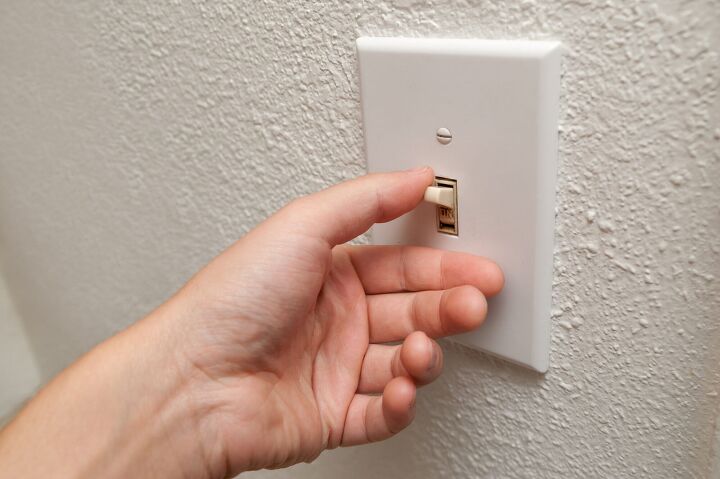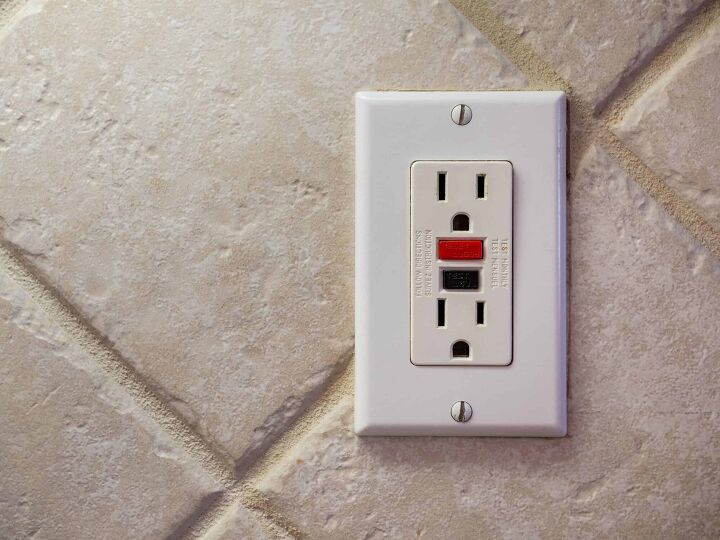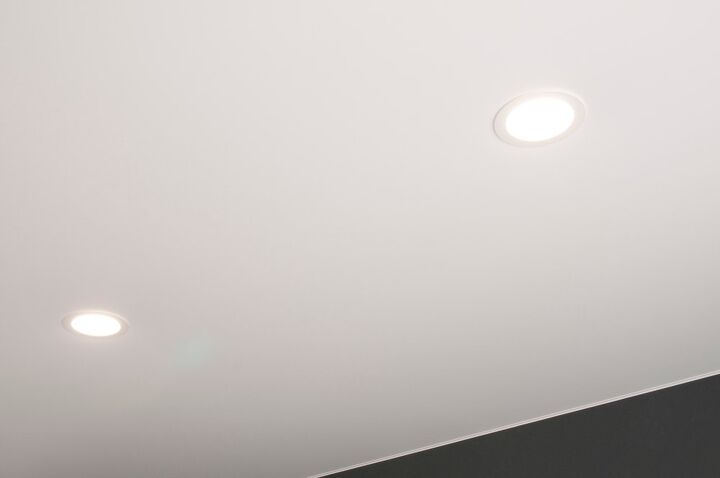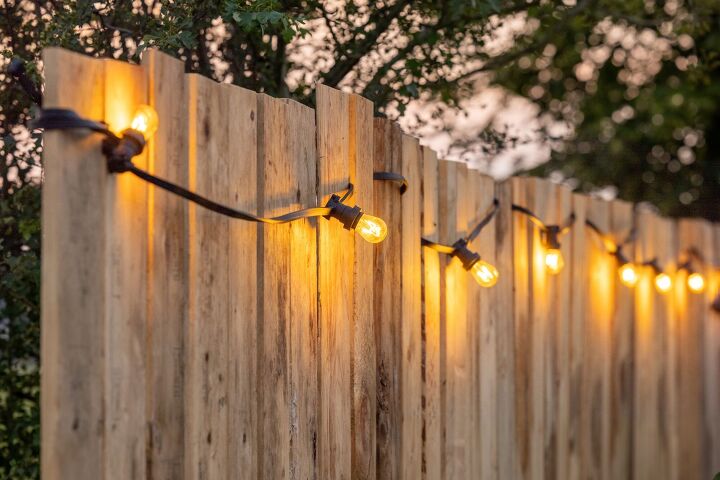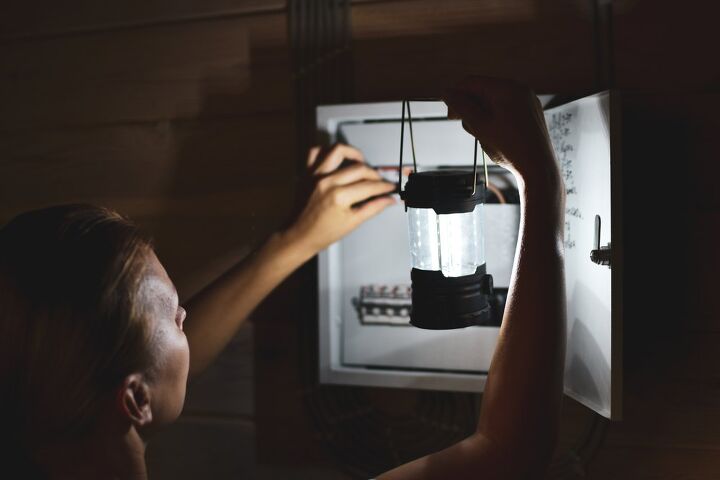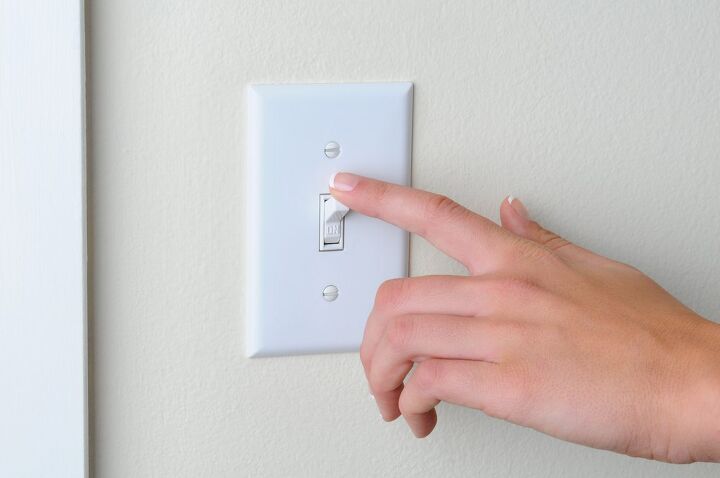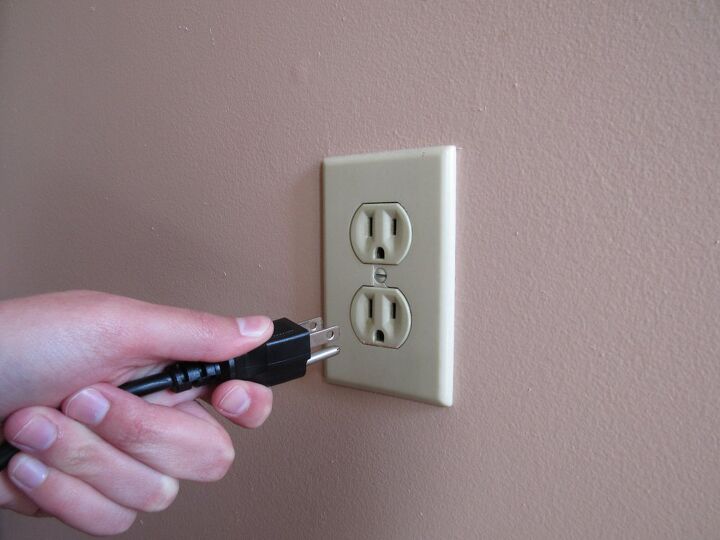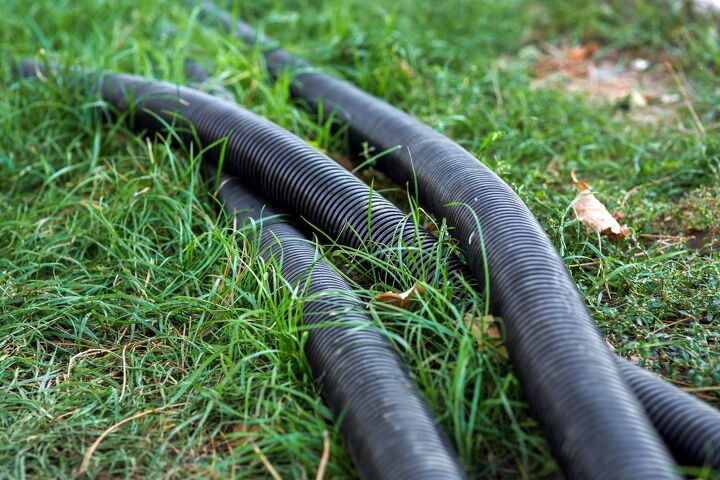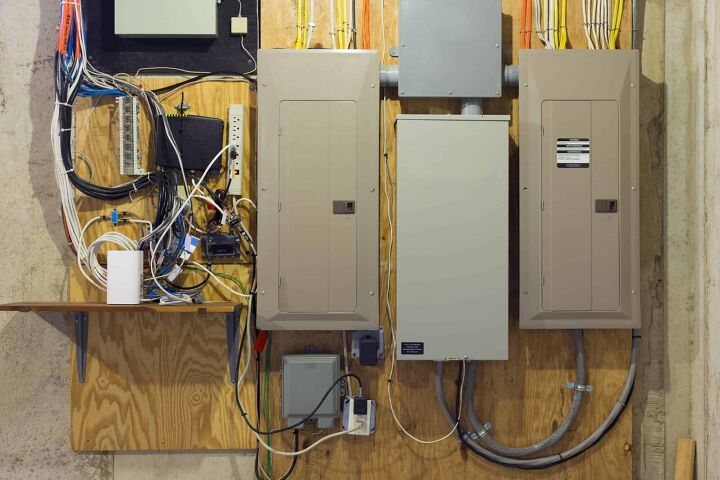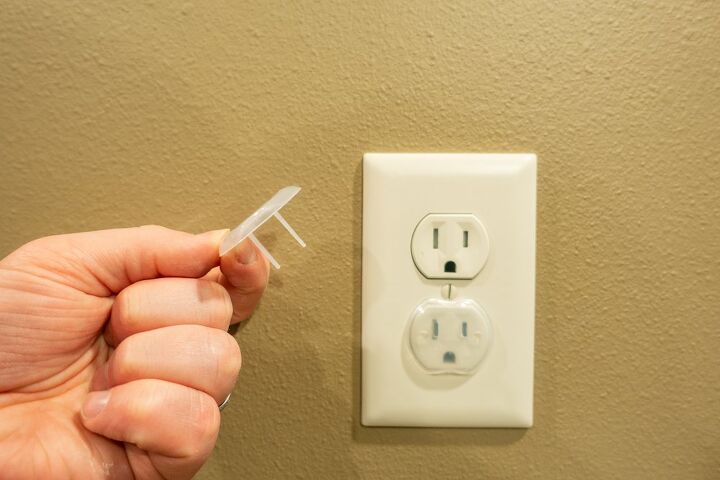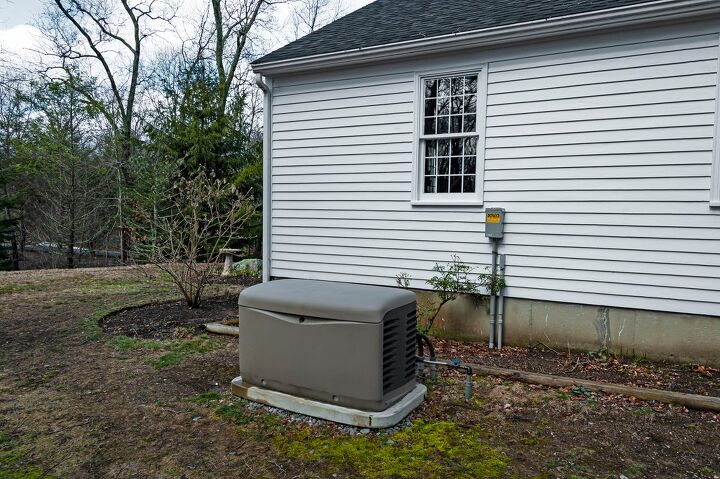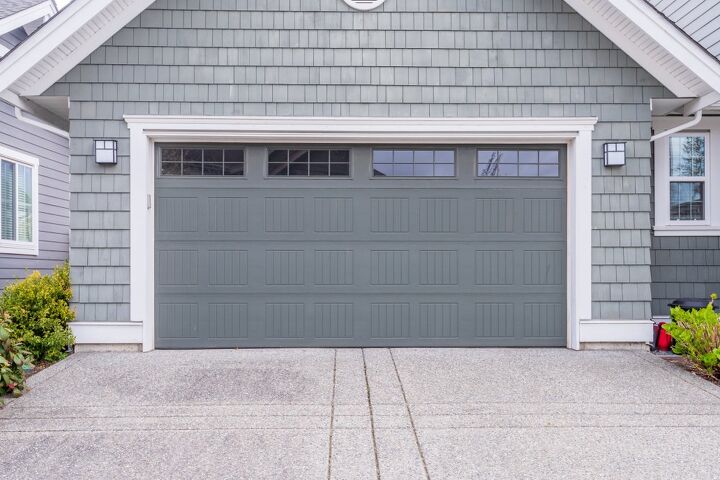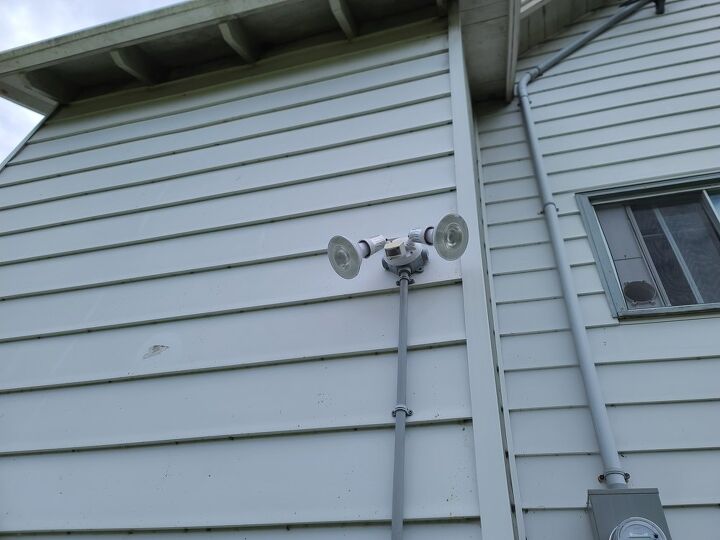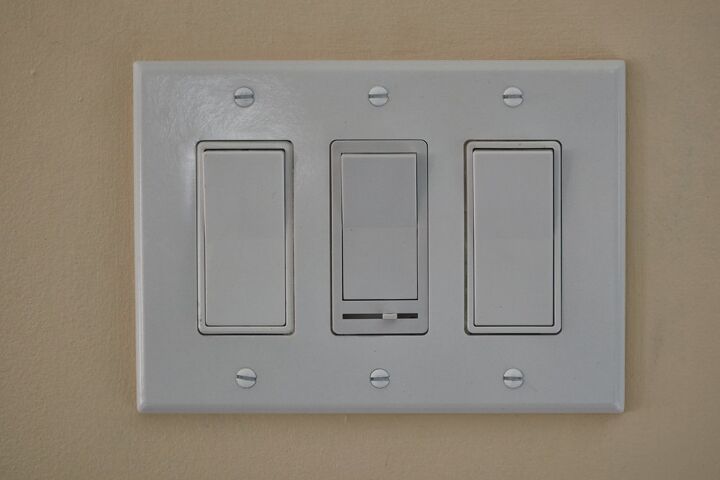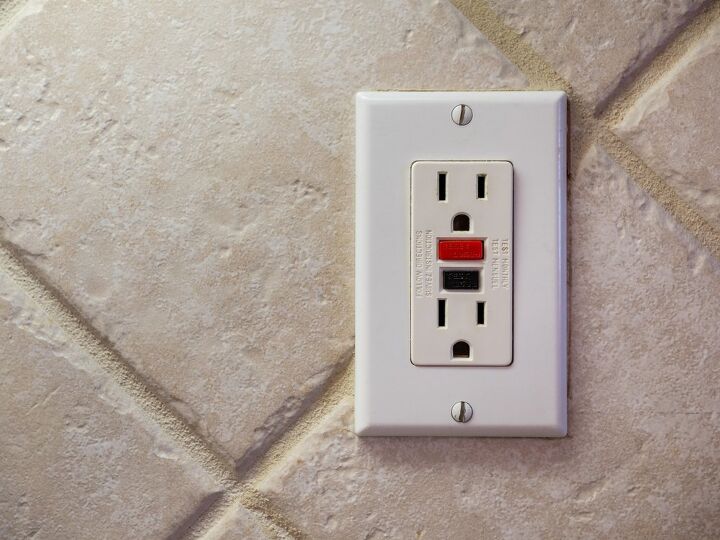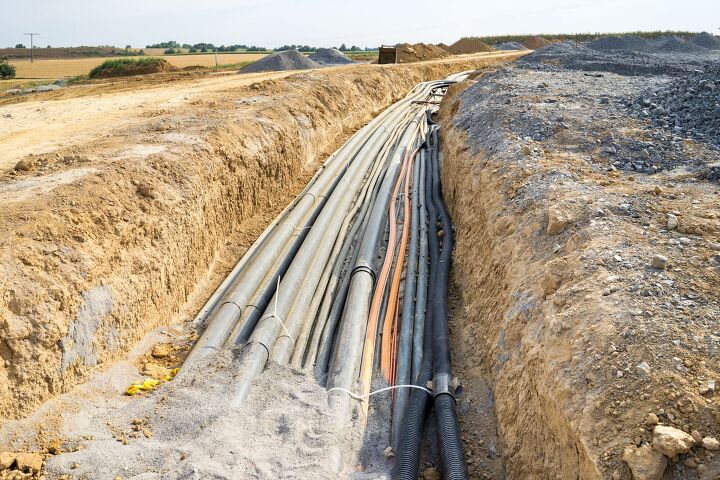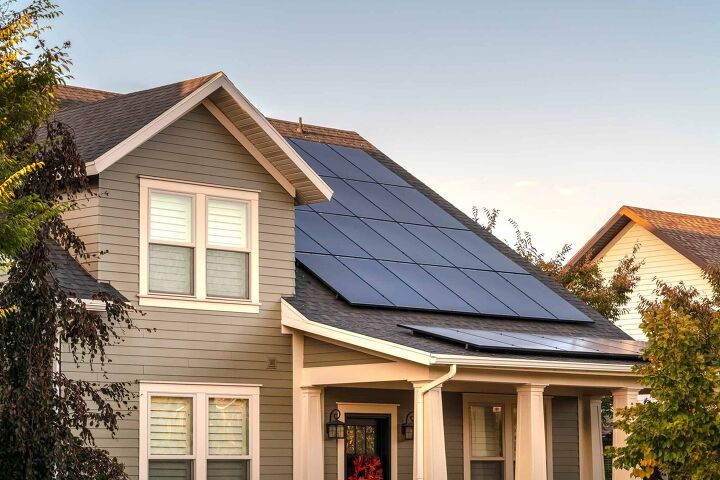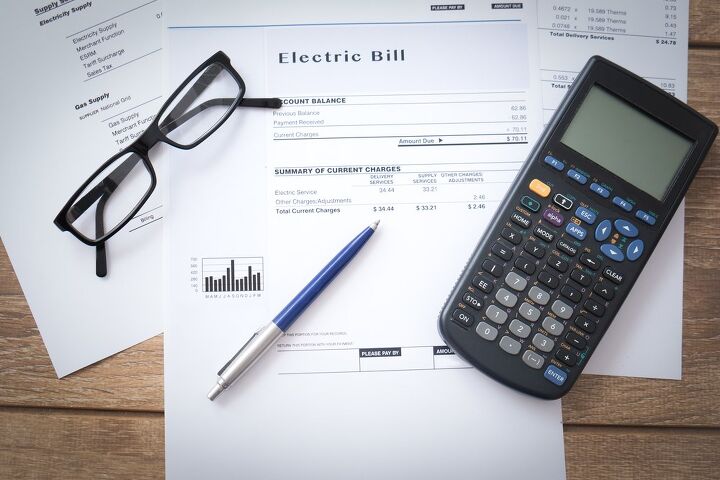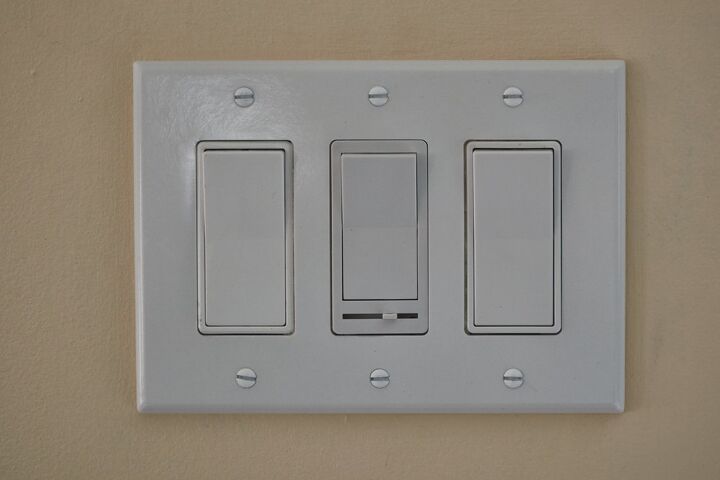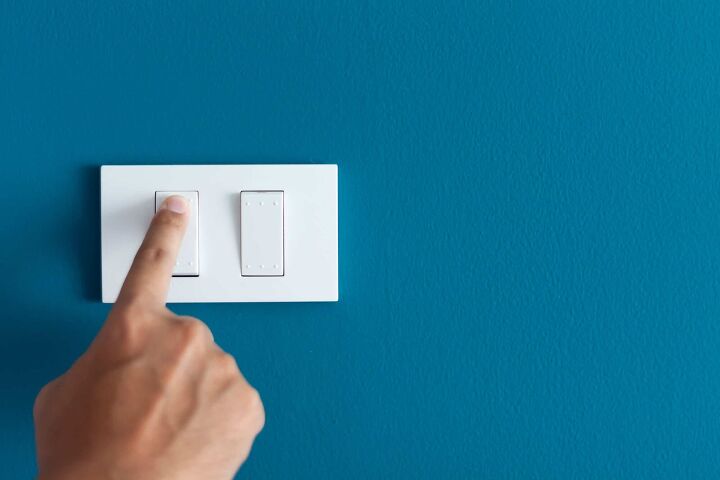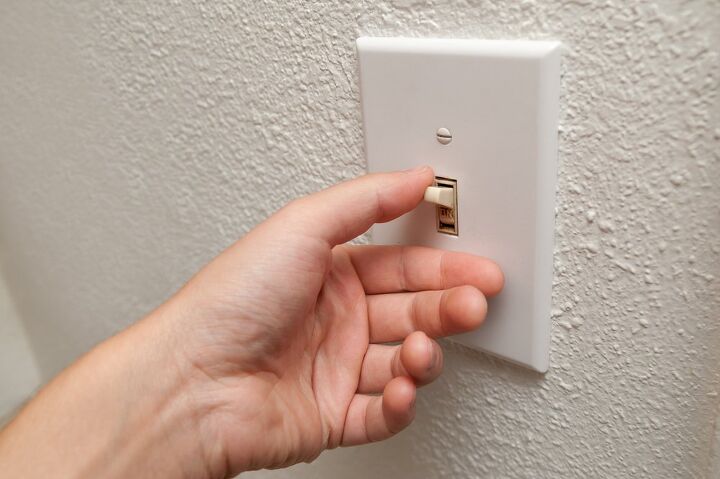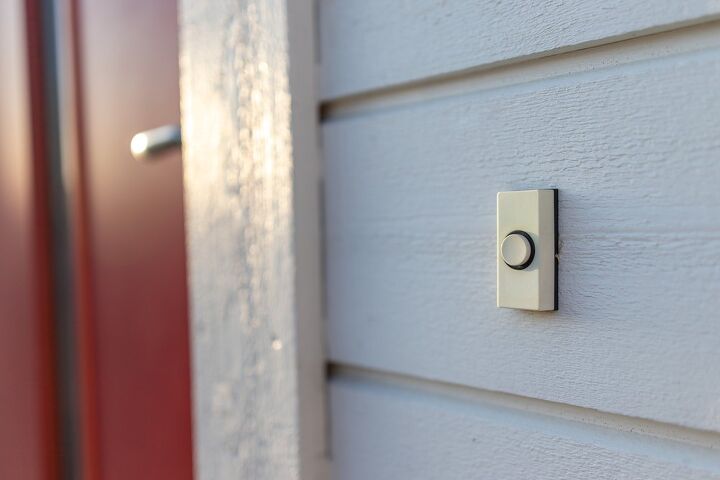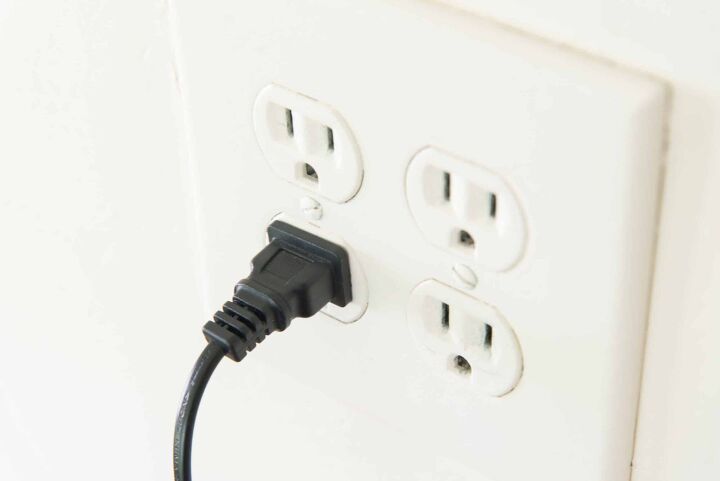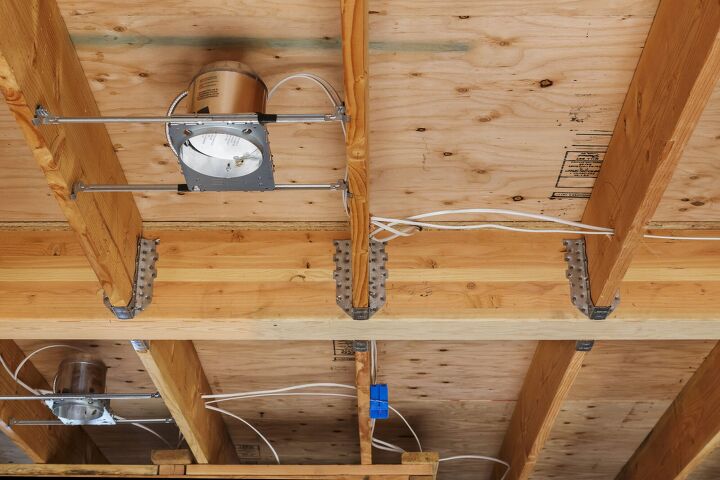Can You Put A Dimmable Bulb In A Non-Dimmable Socket?
As the US moves away from incandescent light bulbs in favor of LED lighting, there are some issues to consider. Many people are unfamiliar with the operating characteristics of LED light bulbs and have questions about replacing their incandescent bulbs. One often asked question is about using dimmable LED light bulbs in sockets not equipped with a dimmer switch.
What Gauge Wire For 50 Amp 220v?
It is crucial to ensure that wiring is appropriately sized for the amperage rating of the circuit. Whenever you need to extend a circuit, rewire it, or install a new one, using the correct gauge wire is essential. So, that being said, what gauge of wire would you use for a 50 amp 220v?
Can You Put Insulation Over Electrical Wires? (Find Out Now!)
You may be building your new dream home, remodeling your present home, or simply upgrading the insulation on your attic. Batt or loose insulation is often the easiest for the do-it-yourselfer to install insulation. Many homeowners wonder if you can put insulation over the electrical wires in your home.
Lights Dim When AC Turns On? (Possible Causes & Fixes)
There is no mistaking when the AC comes on in your house. Not only can you hear the condensing unit start, the lights in the house flicker, dimming for a few moments each time. What does it mean with the lights dim each time the AC turns on?
110V Vs. 120V: What Is The Major Difference?
Many people refer to the voltage at the electrical outlets as 110 volts. Others routinely call these 120-volt outlets. If you plug almost any appliance into these plugs, the appliance works fine in either instance. Do some power companies deliver 110 volts and others 120 volts? What is the real story about 110V vs. 120V?
Can You Use A Junction Box To Extend Wiring? (Find Out Now!)
There are many reasons for homeowners to want more accessible wiring. To do this, electrical work is needed, which often brings up the question “can you use a junction box to extend the wiring?”
What Size Wire For 200 Amp Service Underground?
If you are running an underground 200 amp service, then you may be wondering what size wire to use in your installation. We’re going to answer that question for you, however, keep in mind that you may need a permit and that a professional should do the installation.
How to Fix an Open Neutral
In North America, 240 volts of electricity are supplied to a panel. The 240 volts are split between two 120-volt circuits.
Why Do I Have Two Black Wires On My Light Switch?
How many people does it take to change a light bulb? This old joke comes with a variety of tongue-in-cheek answers. However, when we start talking about changing a light switch, the jokes die down a bit. Changing out your old almond light switch for a more modern look is not as hard as it may seem. However, if you are new to the game, it is better to call an electrician or try it out under the eye of someone experienced in the field.
Can You Put An Electrical Outlet Under A Sink?
You may find a situation where you need an electrical outlet under the sink cabinet in your kitchen. The most obvious reason would be the installation of garbage disposal in a sink that was not previously equipped. If a dishwasher is installed, you may also need an outlet under the sink to provide power to the dishwasher. From the standpoint of electrical codes, is it legal to put an electrical outlet under a sink?
2022 Electric Meter Installation Cost
When planning out your expenses for the months ahead, it helps to know how much you regularly pay for certain bills. That knowledge can help you better distribute your finances. It can save you from potential budget shortages near the arrival of your next paycheck.
What Wire Size For 30 Amp 240 Volt Circuit?
Wiring your home is a tricky business. There are all sorts of factors to take into account when you start planning an electrical project that involves re-wiring. There are the safety considerations, the locations and the appliances themselves. You even need to take special care when choosing all your electrical wire to make sure it can withstand the electrical demands. So when you are choosing the wire for a 30 amp 240 volt circuit, what gauge should you select?
How Far Can You Run A 10-Gauge Wire?
You have your new shop or utility shed built and ready to go. Part of the plan is to run electrical service to the new structure from your home. However, the question of what size wire is required to get electricity to your new utility shed. What kinds of distance can you get if you use 10-gauge wire?
Do I Need A Permit To Install 240v Outlet? (Find Out Now!)
We often use 240-volt outlets in our homes to power large appliances like air conditioners and clothes dryers. If you’ve recently purchased a new appliance, you may find that you need a new 240-volt outlet to power it. Can you install it yourself, or is it necessary to get a permit and involve a professional?
Is Romex Legal In Illinois?
So, you live in Illinois, and you are updating or remodeling your home. As you begin the demolition, you immediately find that all the electrical wiring inside the walls is metallic conduit.
Can A Handyman Install Recessed Lighting? (Find Out Now!)
You may not know the term ‘recessed lighting,’ but you’re guaranteed to have seen it somewhere. These ceiling fixtures, which create nice ambient lighting, are a worthy addition to any home. But it can be tough to know which kind of recessed lighting to buy, and if a pro should install them for you. Let’s discuss the question, can a handyman install recessed lighting?
Why Does My Light Switch Get Hot? (Find Out Now!)
If your light switch is hot to the touch, it could be related to a few different reasons. But the biggest thing to note is a hot light switch is a fire waiting to happen. As soon as you notice the temperature is warmer than warm, call a professional right away.
Can Lights And Outlets Be On The Same Circuit? (Find Out Now!)
Dealing with wiring can be very intimidating. We all know the risks that come with handling wires, but it is necessary from time to time. Still, minimizing risk is possible as long as you abide by established safety guidelines.
How Many Wires Can You Connect To An Outlet?
In new homes, if you open up your outlet, you will usually see two wires. One entering and providing power to the outlet, the other exiting and providing power to outlets downstream. There may sometimes be a third wire to ground the outlet, or to provide power to a downstream line in another direction.
Do Electric Ovens Need To Be Hardwired? (Find Out Now!)
While most of the electric ovens that we are familiar with simply plug into the wall, not all electric units are created equally. From time to time, you may notice that a unit has the capability to be hardwired into place.
Are Ungrounded Outlets Safe? (No, Here's Why)
Are ungrounded outlets safe? No, definitely not. Ungrounded outlets are NOT safe. They’re significantly more dangerous than grounded outlets, and that’s why the National Electrical Code, in 1947,* began requiring certain areas of new constructions to have three-pronged, “grounded” outlets. Ungrounded outlets don’t protect against surges and significantly increase the risk of electrical fires.
Are Dimmer Switches Safe? (Find Out Now!)
Recently, I typed up an entire article about the way that dimmer switches run hot. As someone who grew up in a home where dimmers were a thing, I was pretty shocked to hear how hot they get. Dimmer switches apparently have a reputation for that. Unsurprisingly, some people believe they’re unsafe. I can’t blame them, if they never experienced it. It’s a debate worth discussing. Are dimmer switches safe?
How Many Outlets Can Be On A 15 Amp Circuit? (Find Out Now!)
Outlets allow us to power the modern necessities in life, running electricity to our lighting, appliances, or phone chargers. Having outlets in convenient locations around the house is ideal and can help make life easier. In most modern homes, there is usually at least one outlet on every wall. To keep homes safe, code dictates how many outlets can go onto a 15 amp circuit, standard for most homes.
What Is The Penalty For Cutting The Lock Off The Electric Meter?
If there’s anything I learned to hate, it’s meter readings. No, I don’t want to have to see how badly I’m clobbered with electricity use. I just don’t want to look at it.
Why Electrical Outlets Don't Work: Tips to Troubleshot and Fix
Electrical wall outlets are some unobtrusive but important parts of our home. Think of how many items depend on your electrical outlets to provide power consistently. We hardly give them a thought as we pug and unplug various devices expecting them to work. However, it can be frustrating and confusing when one or more electrical outlets in your home quit working.
Common Questions About AFCI Requirements In Homes
Every homeowner understands the importance of electrical safety. Sure, this isn’t something one thinks of daily, as usually there isn’t cause to think about the electrical systems in your home. You turn your lights on, use appliances, and go about your day without considering all that’s required to reliably provide your home with electricity day in and day out.
Cedar Shake Siding Vs. Vinyl: Which One Is Better?
If you take a look at most suburban homes, vinyl siding is the classic go-to. It’s everywhere! Though vinyl is going to be one of the most common siding types you may see, cedar shake is still fairly popular in upscale neighborhoods. They tend to get a good rep. If you’re ready to upgrade your home’s exterior, then you might be wondering what you should choose. Honestly, it’s a rough debate.
Is Surge Protection Required By Code?
The most common causes of electrical surges come from internal sources within your home, which can send hundreds of thousands of volts through your system at once. When the voltage goes up throughout your house at this velocity, all sorts of things can happen- including fires from overheated wires to tripped breakers and short-circuiting outlets.
Schedule 40 Vs. 80 Electrical Conduit: Which One Is Better?
PVC conduit has many uses in both new construction and remodel construction for residential and commercial applications. Typically, PVC electrical conduit is available as schedule 40 or schedule 80. Each has s specific set of uses, and local building codes usually specify these applications.
How To Connect PVC Conduit To An Electrical Box (Do This!)
The grey pipe or the conduit PVC pipe is designed to handle the heat of the sun and the heat of the electrical wires. Two different kinds are used in electrical work, which are Schedule 40 and Schedule 80. Either or can connect to an electrical box.
Neutral And Ground On Same Bar In The Subpanel? (Fix It Now!)
The electrical components of your home or business can require professional intervention much of the time for good reason. Not only is it a complicated setup, especially to DIYers, but it is dangerous as well. Plus there is the potential of installation going wrong on top of all that.
How Long Does It Take To Replace An Electrical Panel?
It’s a no-brainer as a homeowner to know that things will need to be replaced and upgraded over time. While people know to get new appliances or furniture, they often forget about things like an electrical panel.
Can Romex Be Exposed In The Garage?
Electrical wiring is not only for the main areas of the house anymore. Modern homes may see electrical wiring throughout the property, running into sheds, garages, and even patios or decks. It only makes sense with the prevalence of flat-screen televisions as they can be placed just about anywhere with a simple electrical connection.
Can A Dishwasher And Disposal Be On The Same Circuit?
A modern kitchen needs to be able to do a lot, sometimes without much space. There needs to be a way to store and prepare food, clean and store dishes, and dispose of trash.
Can You Turn A Light Switch Into An Outlet? (Find Out Now!)
If you have a light switch that you hardly use, it might be more beneficial to convert it into an outlet. But can that even be done? The answer is a resounding yes!
What Amp Light Switch Do I Need? (Find Out Now!)
The purpose of light switches and dimmers is to open and close electrical circuits, which control the light fixture. Before installing or replacing a light switch, it’s important to ensure that the switch you choose matches the amperage rating and voltage of where it’s going to be mounted. For this reason, you may find yourself asking: What amp light switch do I need?
Does A Refrigerator Need To Be On A GFCI Circuit?
Your refrigerator can work with a standard electrical outlet as well as a GFCI. Many people believe that using a non-GFCI outlet is the best option for food storage. Thinking that this will prevent unnecessary tripping of the circuit breaker, causing food spoilage.
My Recessed Lights Are Not Working (Possible Causes & Fixes)
Recessed lights are a visually appealing and modern way to add depth to a room. You can change the aesthetic of a room completely when you install recessed lights, that is when they work. So, what does it mean when my recessed lights are not working?
How To Hang String Lights In Backyard Without Trees
So, you went to your friend’s house the other night for some backyard conversation and wine and fell in love with their yard. It was relaxing and comfortable, and those string lights in their trees were the perfect finishing touch. Now you want to hang string lights in your backyard, but you don’t have any trees.
How Long Does It Take For The Power To Come Back On?
We don’t realize how much we depend on our electricity until there is a power outage. While electricity at one time was merely a useful convenience, the way our homes currently run, it is more of a necessity. A power outage can cause your food to spoil, leave you without a way to cook food, and it can also affect your heat or air-conditioning system. So when your power goes out, you’ll probably want to know, “How long does it take for the power to come back on?”
Why Your Light Switch Is Buzzing (Possible Causes & Fixes)
We are fortunate in the US to have one of the most stable and dependable electrical systems in the world. Most of us don’t give a thought to coming into a dark room and flipping an almost silent switch to bring light to the darkness. However, it can become disconcerting when a simple light switch starts to buzz.
How To Tell If An Outlet Is 110v Or 220v (Find Out Now!)
We tend to take our power outlets for granted. They are seemingly just there to accommodate our every need without batting an eyelash. But there are two main types of power outlets to be aware of: 110V and 220V.
How Many Amps Does A Water Heater Use? (Find Out Now!)
People often tend to forget about things they grow used to in a home. A water heater is one of those appliances that are well hidden we tend to forget. The only time we know, it is there is when the hot water is not working.
Can I Run Electrical Conduit Above Ground? (Find Out Now!)
Your new workshop is sitting happily behind your landscaped backyard. The only thing lacking is electricity in the shop. Unfortunately, the pedestal that holds your electric meter is on the other side of your beautifully landscaped backyard. Ditching to run the electrical lines underground would destroy much of your landscape. You wonder if you can run electrical conduit above ground?
Power Goes Off, Then Comes Back On? (Here's Why)
It is understandable to be concerned when your power goes out and comes right back on. The power can go out without explanation and come right back on baffling any homeowner. So, what does it mean when the power goes out and comes back on, and should you be concerned?
Is It Safe To Cover An Electrical Outlet? (Find Out Now!)
If you have recently relocated an outlet in your home, you may be left with an empty or dead outlet on the wall. While the dead outlet is certainly not harming anything, it can be unsightly if the outlet is no longer used. Hiding or covering the outlet can be tempting, especially to make your home look nicer without an ugly outlet on the wall.
What Size Generator Do You Need To Run A Water Heater?
During Superstorm Sandy, most of my neighborhood was out of power. Having a warm shower felt like a distant memory, unless you had that one “bougie” neighbor with a generator. I was lucky enough to be friends with a millionaire’s daughter at the time. So, I got a shower. Part of getting that warm water involved knowing what size generator they needed to run a water heater.
Can You Put A Floodlight Bulb In A Regular Socket?
LED floodlights are some of the brightest lights on the market right now. A properly functioning LED floodlight will illuminate a significantly wide area, and this is why these lights have “flood” in their name. They essentially flood a space with light, as opposed to spotlights and downlights that usually only illuminate a small area.
Why Do Dimmer Switches Get Hot? (Find Out Now!)
Dimmer switches can often take people by surprise with the heat they emit, particularly if they aren’t used to using them in the house. It can be shocking, true. However, there is a difference between a warm dimmer switch and one that it hot enough to make you go “OW!” Are you one of the many people curious about the reasons why dimmer switches seem to turn up the heat.
Does GFCI Protect Against Surges?
We are blessed with one of the most reliable and trouble-free electrical grids in the world. We often take the quality of the electrical service we receive for granted. However, we still are subject to problems with the power on occasion. One of these problems is power surges that can damage or destroy appliances and electronics. Many people wonder if their GFCI outlets protect their electronics from power surges.
How Much Does Underground Electrical Service Cost?
Very few improvements can improve the look of both your home and your neighborhood than removing overhead wires. Whether you’re remodeling your home or working on a different project on your property, it may make the most sense to dig a trench and bury existing wires or upgrade your current services. However, underground lines can be costly and you’ll likely end up spending thousands more on this job than overhead lines, plus the few days of labor to dig and fill the trench.
Do I Need A Permit To Install Solar Panels?
Making the switch to solar is one of the biggest decisions in a homeowner’s life. Whether you want to save money on your electricity or get completely off the grid, there are options for you.
How To Reduce Your Electric Bill
The shock of a massive electric bill is enough to make any homeowner want to curb their energy consumption. Whether it be in the dead heat of summer or the harsh cold of winter, you can’t simply go without heating or cooling. Luckily, there are some great ways to reduce your electric bill and save energy.
Why Are Dimmer Switches So Expensive? (Find Out Now!)
Have you ever been in a room that was too bright, and you wished that you could tone down the brightness of the room’s light? If so, then you would need a dimmer switch to do that. Dimmer switches are a commodity that doesn’t come as standard procedure on most houses. They’re a specialty item that costs more than normal light switches.
Do Light Switches Need To Be Grounded?
Light switches are a major feature in the electrical system of a home. They are located in every room and some rooms have multiple switches. The switches in older homes were not grounded but due to new safety regulations, many new construction homes do have grounded light switches.
What Is The Difference Between A Single And Double Pole Switch?
Switches are used for operating lights, fans, garbage disposal, and even large electrical mechanisms. However, not all switches are the same. Planning out which switches and sockets to have in your home bears many questions.
Which Circuit Is The Doorbell Usually On?
Doorbells are a simple, albeit important fixture of modern homes that are typically reliable and low maintenance. Things can still go wrong with a doorbell despite the simplicity, so it’s important to know basic electrical information about your doorbell. So, which circuit is the doorbell usually on?
Plug Gets Hot When Plugged In? (Possible Causes & Fixes)
An electrical outlet (also referred to as an electrical receptacle) is the place where you plug in all your appliances and electrical devices. When functioning correctly, these will stay at room temperature.
Can IC Rated Lights Be Covered With Insulation? (Find Out Now!)
Downlights, also referred to as recessed lights, are a very popular and cost-effective way to provide lighting to your living spaces. They are installed in both new constructions and home renovation projects, providing many advantages to homeowners that lack the space for traditional lighting fixtures. Recessed lights can be easily tucked in between ceiling joists to add extra lighting and ambiance, with the need for pendant or freestanding fixtures.



